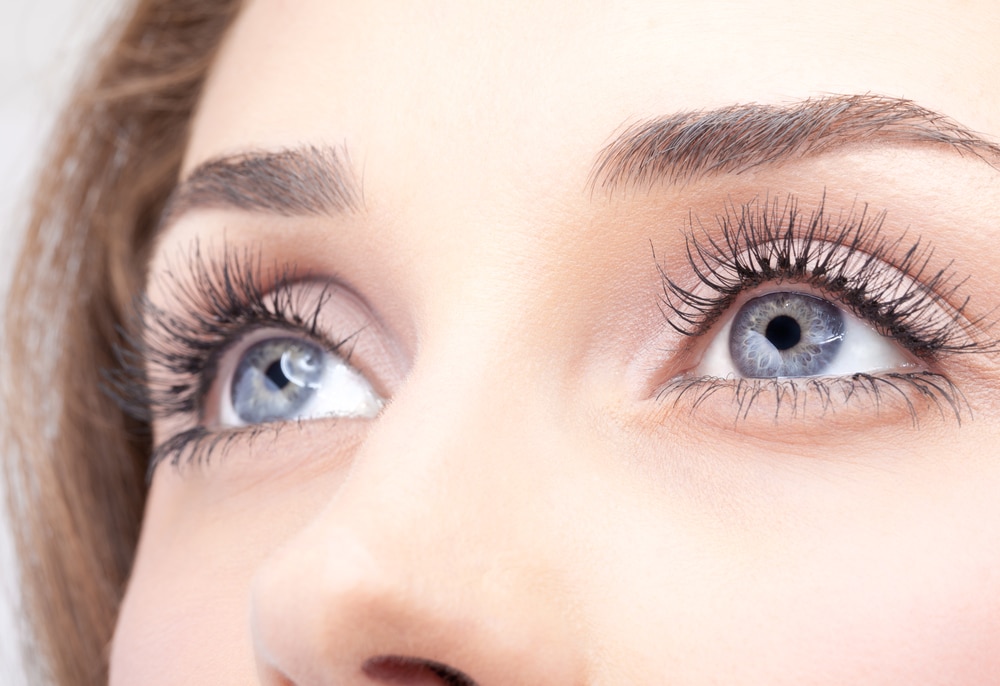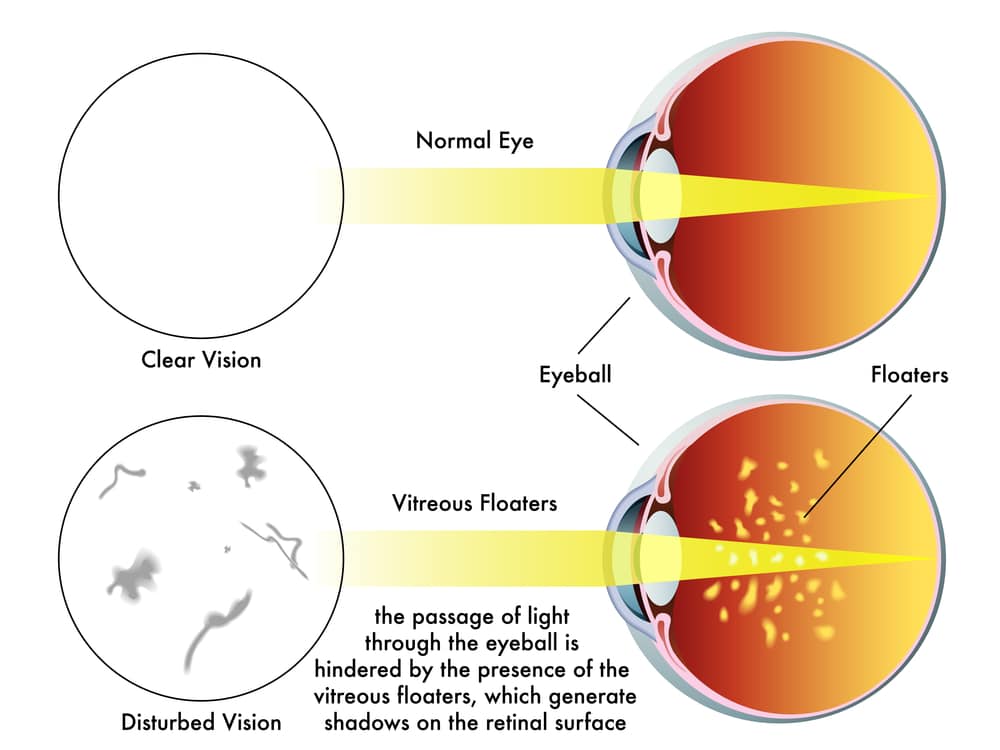
You know when you look up at the sky or at a blank Word document on your computer screen and you have little squigglies in your vision? These are called eye floaters. If you have them, you may wonder whether or not they’re something to be concerned about. In truth: it depends. In most cases, you don’t need to worry about floaties in your vision. However, there are some cases where you will need to contact an eye specialist about them.
Here is what you need to know about eye floaters, what causes them, and when they are and are not cause for concern. Let’s get into it!
What Are Eye Floaters?
These are spots in your vision. They can look a few different ways. You may see them as squigglies, black or gray specks, or threads. They come in a variety of shapes and sizes.
You usually notice them when you look at something light-colored, like a blank document, a light wall, the sky, or something else like that. They move with your eye, but there’s usually a lag before the floaters go in the direction your eyes went.
However, if you try to look at a floater, you’ll find that it moves out of your line of vision. Floaters will typically settle down and drift out of your line of vision, causing you to notice them less.
What Causes Floaters?
Floaters can be caused by a variety of different factors. If you notice a sudden increase in the amount of floaters you have and they start to impact your vision, you should contact an eye doctor right away, as this could be a sign of a serious eye issue.

Floaters are most commonly caused by vitreous changes. Your vitreous humor is the jelly-like substance within your eye that fills the space between the retina and the lens. It helps to maintain the shape of your eyeball and acts as a shock absorber. Contrary to what you may think, eye floaters aren’t actually on the outside of your eye, but within your vitreous humor.
This is because floaters are created when little clumps form in the vitreous. This can happen simply as a result of aging, due to how your vitreous slowly pulls away from the interior surface of your eyeball. The collagen fibers in the vitreous then form strings and clumps which cast shadows on your retina – aka, floaters.
These are typically quite harmless. However, there are some serious conditions that can cause floaters. These are:
- Inflammation. Uveitis is a type of inflammation at the back of your eye and can result from autoimmune disorders, inflammatory diseases, and infection.
- Bleeding inside the eye. This can happen due to injury, retinal tears, retinal detachment, high blood pressure, diabetes, and blocked blood vessels. What looks like floaters are actually blood cells.
- Retinal tears. Your vitreous naturally contracts now and then. If it contracts too hard, it can tear your retina. If left untreated, this can lead to retinal detachment.
- Eye medications or surgeries. These can cause bubbles in your vitreous, which look like floaters.
Contrary to what some may believe, contact lenses do not cause floaters. However, since they improve your vision, they can improve your awareness of eye floaters.
Should You Be Concerned About Eye Floaters?
In the majority of cases? No. While floaters may be mildly annoying, they’re not typically something that you need to worry about. If you have concerns, you should bring them up to your eye doctor.

However, there are cases, as mentioned above, where floaters can indicate more serious issues. You should contact your eye doctor right away if:
- You suddenly have more floaters
- There are a lot more floaters than usual
- There are blurry or grey areas blocking parts of your vision
- You see flashes of light with the floaters
- You have darkness at the side of your vision
While typically painless, these can threaten your vision and need to be treated as soon as possible.
Some people also experience floaters and flashes during migraines or from standing up too quickly. Treating the cause treats the floaters.
How Do You Treat Eye Floaters?
As mentioned before, you usually don’t need to treat eye floaters. Your eye doctor will tell you whether you do or not.
However, if they are blocking your vision, you can undergo a surgery called a vitrectomy, where your vitreous is replaced with a salt solution. If you have some of the other issues that can cause floaters, or what look like floaters, treating the issue should treat the floaters.
If you are concerned about eye floaters, consult with your eye doctor.
If you want to improve your vision, Wolcott Optical can provide you with both glasses and contact lenses. Contact us today to learn more.
